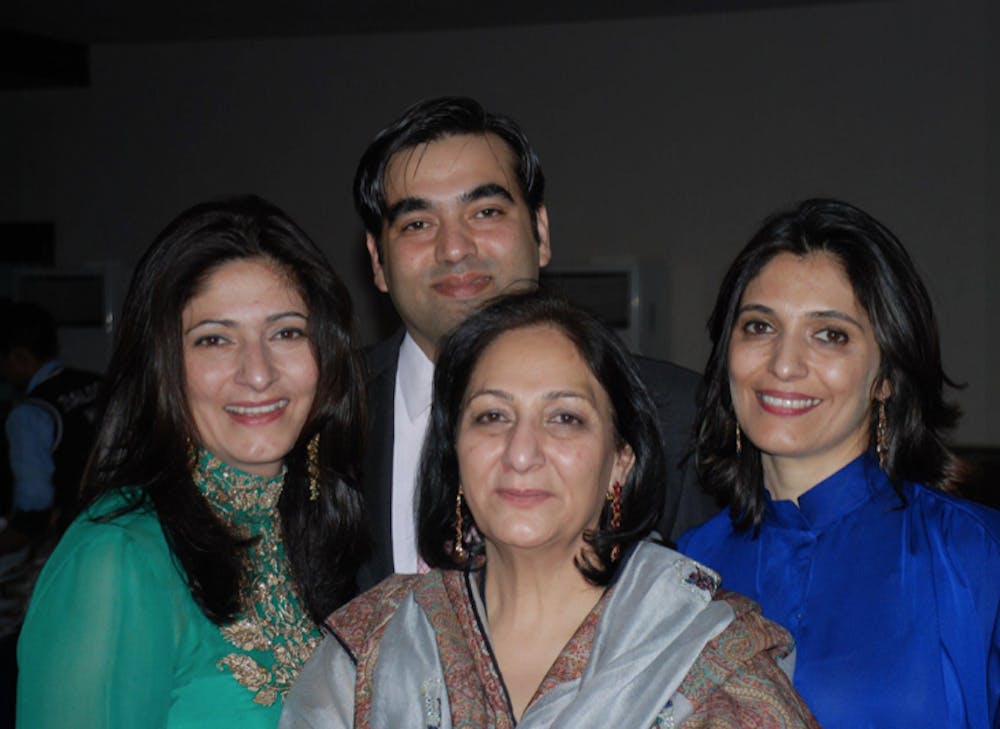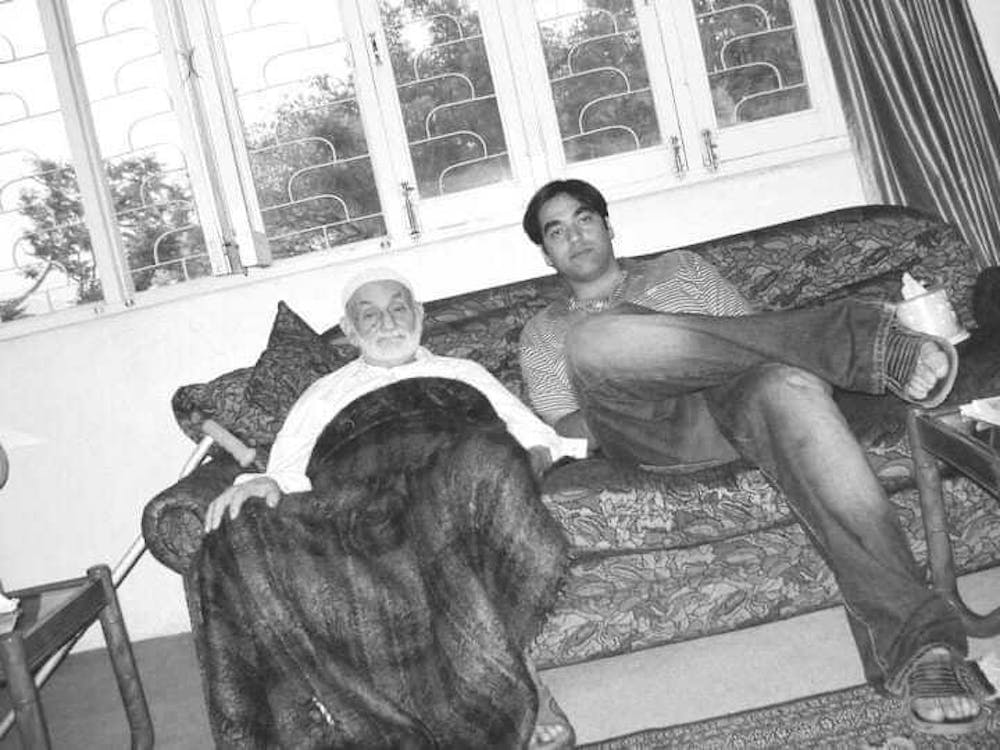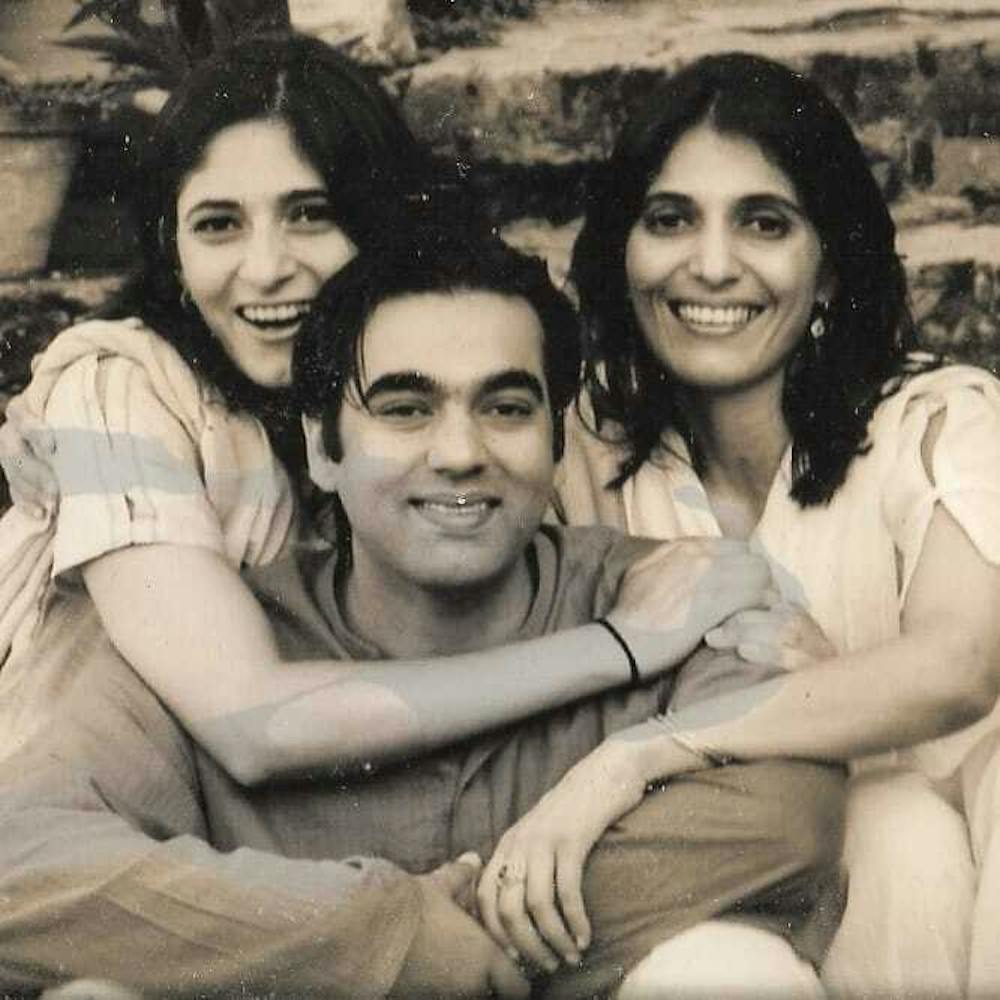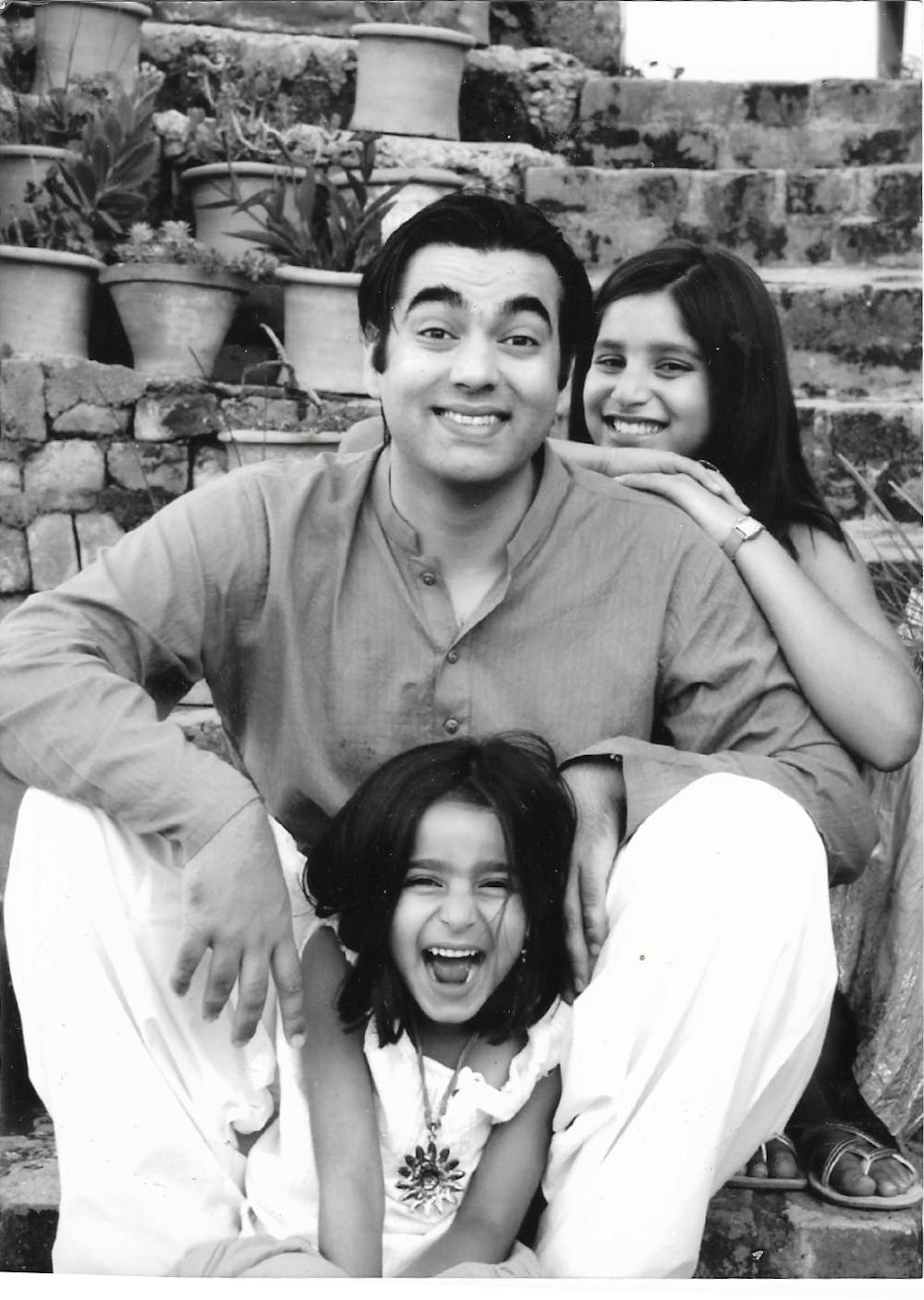It’s my 21st birthday today. Watching my friends slowly celebrate this American milestone — a newfound expression of freedom falling on their faces — a pang of jealousy fills my stomach. I’ve been dreading my own 21st birthday. It’s a painful reminder of what happened exactly one year ago on that crisp autumn afternoon, that fateful Philadelphia October day on my 20th birthday. The call from my father informing me of a family accident would forever change the meaning of the day, forever change my family life, and forever create a wound that will never fully heal. It is a day linked to trauma, grief, and suffering. We were never the same. I entered my seasons of healing.
Fall 2020
The night of my twentieth birthday, I had a vivid vision. Muhammad Mamo — my mother's brother — was in the hospital. He had been found after he fell in the hypothermic, tumultuous Indus River, attempting to save his young boys who had slipped in. My family, united, went to visit him in the hospital. I could feel the stress and anxiety leave my body. Everything was okay. When I woke up, a false hope emerged. But it was merely a dream.
When I woke up, my worst nightmare became my reality. My uncle was missing after miraculously saving his children from drowning in the mythical Indus river. My parents abruptly left for Pakistan without saying goodbye. Who I once was was gone; a new feeling took the place of my old self. Emotion devoured my soul; the rush of overwhelming grief spread through my body like a wildfire destroying California. My head was in an ashy, fiery haze, where this unbearable emotion spread throughout my body taking over every space of color, positivity, and joy.
I was in mourning. I needed answers for this novel and overwhelming feeling. I turned to Google to answer the unanswerable question of “How long does mourning last?”
The response was that in six to eight weeks one should start feeling better. It would take six to eight months for full mourning.
With each month, I expected to magically feel better. But I was disappointed that, month after month, I was still not who I was before. To my disappointment, healing was not linear. Winter had fallen.
Winter 2020
Looking outside the window of my bedroom during Zoom class, I caught the eye of a masked figure walking up and down the street. It was my father; I hadn’t seen him face to face since August 2020. He got sick with COVID-19 while on the search team looking for my uncle.
And still my dad walked. Trekking on. Keeping secret of the grueling process of attempting to find my uncle. Scouring forests and rivers for any crevice where my uncle could’ve rested. And, without a body, the best he could have was a Zoom prayer.
“Iman, are you listening?” I snapped back. I was in class preparing for our final exam. And while academic pursuits would interest me in the past, school had been taking a back seat.
My mom had been gone for months, my dad, along with 30 other family members, were sick with COVID-19. How could my priority be writing a discussion post?
Apathy consumed my days; nightmares consumed my nights. I felt so weak; I would forget to eat, to drink water, to do my homework. I was merely existing.
The night of the Zoom call, I found an image of my uncle, my sister, and I when I was six years old. I remember my uncle tickling my ear as I sat on the step below him as the photo was taken. A huge smile emerged on my face, and my uncle commented that I had a “kodak smile.” This photo was a beautiful memento of this incredibly selfless man. He always wanted to make others laugh, to spread joy.
That night, in early dawn, I joined my family and friends from around the world, united in little boxes on a screen. We shared stories of his life. In our grief, we took the first hard step in healing together.
We prayed. The pain of the day of my 20th birthday replayed in my head. The aggravating question of where he was exhausted me. A body was still missing.

Spring 2021
Heading back to school for the spring semester, I was lost. I had this unrealistic expectation that I should be fine, that things were back to normal. Everyone else in my family seemed to be moving on, yet I was still stuck. Instead of progressing forward in my healing process, I started experiencing PTSD. I learned that I was a victim of second-hand trauma, and small reminders of the day would spur intense flashbacks leading to panic attacks. My grief-ridden brain convinced myself that no one could understand this unbearable pain.
Days turned to months, and in March 2021 my uncle was eventually found by a fisherman. He found his way back to us and was buried in my family cemetery in North Pakistan, resting at the feet of his grandfather. And while a difficult day, I found solace in the fact that this tragedy had ended. The healing process hadn’t.
Just as the snow melts, and winter leaves, the buds of trees and flowers emerge in spring. We are reborn. And for me, for the first time in a long time, gratefulness took the place of depression.
I am grateful for the fisherman who found him. I am grateful for my friends who would let me stay nights at their house when my own apartment was too unbearable. I am grateful for my family who have helped carry this burden with me. I learned that, maybe, the path to healing begins with gratitude.

Summer 2021
My grandmother — my uncle’s mother — came to visit us this summer. Although I started to recognize the importance of gratitude, healing was not complete. The six to eight months of “mourning” had passed, but I was still not the same. I saw my grandmother persevering each day, not wallowing away by this insurmountable pain.
I was so inspired by her grit, as I couldn’t imagine the suffering she had gone through. I asked her why everyone else seemed to be able to move on and I was stuck.
“If we let these things weigh on our soul, we will never be able to go forward,” she told me.
With that, she taught me the importance of grace. Grace for ourselves in our healing process and grace for those who are suffering.

Fall 2021
A year later, I passed the six month grieving period Google suggested, and I am still not okay. My path to becoming whole again is ever-changing.
In my last article about my uncle’s death, I referenced 13th-century Persian poetry by Sufi poet Rumi: “Don’t run away from grief, o’ soul / Look for the remedy inside the pain / Because the rose came from the thorn / And the ruby came from a stone.”
A year later, the thorns of grief still prickle, and the stone of the loss still crushes. However, as time progresses, the buds of roses peer out, the rubies start to glimmer.
Grief and gratitude coexist. We grieve the ones we lose and are grateful for the ones who have stayed behind. I give myself grace for not being okay yet; grace that we are able to move on Gratefulness has become my roses and rubies. We treasure the silent moments we have with one another. In unity, we cry.
On my 21st birthday, I grieve my uncle’s first death anniversary. However, it becomes a reminder for those who wanted to understand my pain, to be my crutches when I couldn’t walk. A reminder of those who provided grace when I was mourning. A reminder that the load of grief slowly loses weight as others help carry it. It’s a reminder of the strength of my grandmother, my aunts, and my mother. We will eventually find peace. We will heal.

IMAN SYED is a College junior studying international relations and consumer psychology from Rye, N.Y. She is The Daily Pennsylvania’s newsletter editor. Her email is imansyed@sas.upenn.edu.
The Daily Pennsylvanian is an independent, student-run newspaper. Please consider making a donation to support the coverage that shapes the University. Your generosity ensures a future of strong journalism at Penn.
Donate





Most Read
More Like This